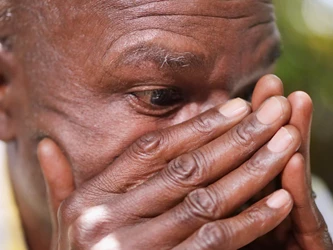
Next up in our ASWB exam content outline tour: the dynamics and effects of loss, separation, and grief. These are part of nearly every social work setting—and highly likely to appear on the licensing exam. Let’s review the key concepts and theories, then try a practice question.
Understanding how people respond to loss is essential for effective social work practice. Here’s what you need to know.
The Dynamics of Loss, Separation, and Grief
First, definitions:
Loss
-
Involves the absence of someone or something meaningful—loved ones, roles, health, dreams
-
Can be tangible (e.g., death) or intangible (e.g., loss of identity)
-
Often triggers strong emotional and behavioral responses
Separation
-
A form of loss that involves physical or emotional detachment
-
Can be voluntary or involuntary (e.g., divorce, incarceration)
-
Common reactions include fear, anxiety, or abandonment
Grief
-
The emotional process of reacting to loss
-
Can include sadness, anger, guilt, or numbness
-
Unfolds differently for each person over time
Effects of Grief
Common effects of grief include:
- Emotional: sadness, anger, guilt, shock
- Physical: fatigue, appetite changes, headaches
- Cognitive: poor concentration, confusion
- Social: withdrawal, strained relationships, isolation
Grief Theories and Models to Know
These models show up regularly on the exam. Know the core idea, key stages or tasks, and how they might apply.
Kubler-Ross’s Five Stages of Grief
-
Denial, Anger, Bargaining, Depression, Acceptance
-
Not linear—people may move back and forth
-
Helps normalize a wide range of grief responses
Worden’s Four Tasks of Mourning
-
Accept the reality of the loss
-
Process the pain
-
Adjust to life without the person
-
Find an enduring connection while moving forward
-
Emphasizes active work, not just passive emotion
Stroebe & Schut’s Dual Process Model
Bowlby’s Attachment Theory
-
Grief stems from broken emotional bonds
-
Childhood attachments shape adult grief responses
-
Grieving involves searching, disorientation, and reorganization
Continuing Bonds Theory
-
Grief doesn’t require “letting go”
-
People maintain healthy symbolic connections (rituals, memories)
-
Especially relevant in some cultural or spiritual contexts
Rando’s Six R Processes
-
Recognize, React, Recollect, Relinquish, Readjust, Reinvest
-
Emphasizes movement and re-engagement with life
Neimeyer’s Meaning Reconstruction
-
Loss disrupts a person’s assumptive world
-
Grief involves rebuilding meaning and identity
-
Especially useful for traumatic or unexpected loss
Rubin’s Two-Track Model
Parkes’s Phase Theory
Cultural and Individual Differences
-
Culture shapes how people express grief and what rituals they use
-
Some cultures encourage outward grief; others emphasize stoicism
-
Grief can also vary based on age, spiritual beliefs, support systems, and prior trauma
Support Strategies for Social Workers
For Individuals:
-
Create space to express grief without judgment
-
Normalize their experience while watching for prolonged grief disorder
-
Encourage healthy coping (journaling, support groups)
For Families:
-
Support open communication
-
Help family members respect differing grief styles
-
Facilitate rituals or memorials if appropriate
For Communities:
-
Educate about grief to reduce stigma
-
Offer accessible mental health support
-
Build peer networks and group resources
Practice Question
How this could appear on the ASWB exam:
A client expresses guilt for feeling relief after their parent’s death. The parent had suffered from a long-term illness. What should the social worker explore first?
A. The client’s relationship with their parent before the illness.
B. The cultural beliefs and values influencing the client’s grief.
C. Whether the client has resolved their grief.
D. The presence of depressive symptoms due to unresolved grief.
Narrowing down:
-
A is relevant but too narrow for a first step.
-
C assumes grief is something that gets “resolved,” which oversimplifies the process.
-
D pathologizes the client prematurely.
-
B is best—cultural context often shapes how clients interpret and express feelings like guilt or relief.
Try a Test Now
Get more questions like this with SWTP's full-length practice exams. Currently just $39—even less when you bundle. Keep going till you pass.

